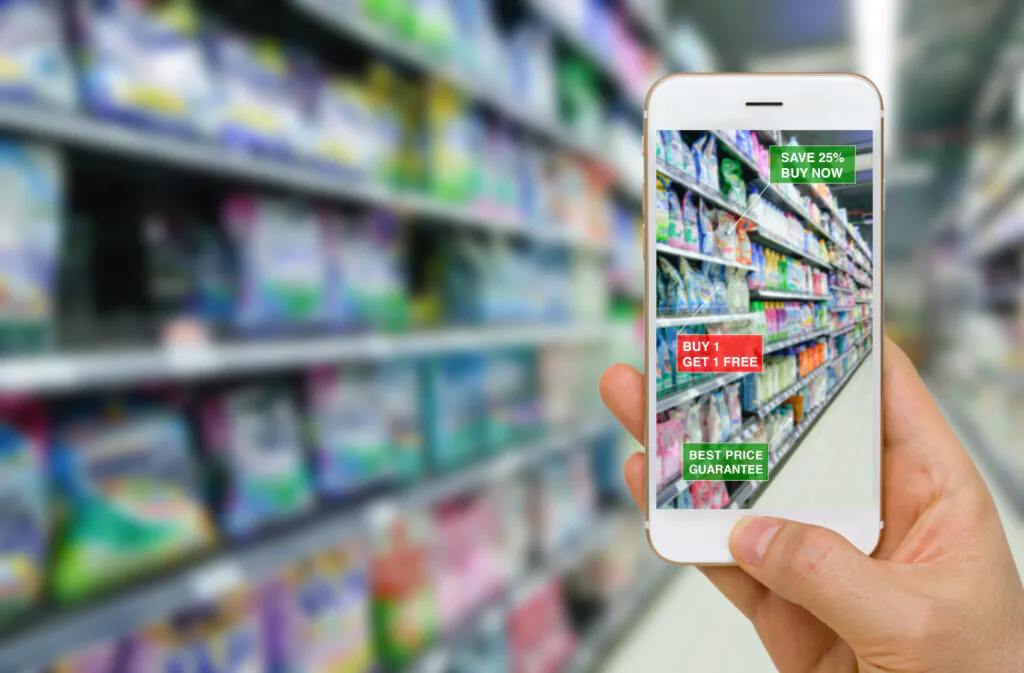Overview
The future of retail shopping is on the brink of a profound transformation, driven by swift technological advancements and changing consumer demands. Retailers are embracing innovations such as artificial intelligence, machine learning, and automation to revolutionize the shopping experience, optimize their operations, and provide highly personalized services. The emergence of omni-channel retailing, along with an increasing emphasis on sustainability and ethical practices, is reshaping consumer behavior and expectations. Cutting-edge trends like virtual and augmented reality, smart store technologies, and data-driven insights are redefining how consumers engage with brands. These advancements are setting new benchmarks for convenience, engagement, and efficiency, creating a retail landscape that is both dynamic and responsive to the evolving needs of shoppers.

Key Trends Shaping Retail Shopping
Several key trends are shaping the future of retail shopping, transforming how consumers interact with brands and how retailers operate:
Omni-Channel Retailing
Consumers expect seamless integration between online and offline shopping experiences. Retailers are focusing on creating consistent, connected experiences across multiple channels, from physical stores to mobile apps and social media platforms
Personalization
Leveraging data analytics and AI, retailers are offering tailored recommendations, customized promotions, and personalized shopping experiences, making each interaction more relevant and engaging for consumers
Sustainability and Ethical Practices
Shoppers are increasingly prioritizing brands that demonstrate a commitment to sustainability and ethical sourcing. Retailers are responding by adopting eco-friendly practices, transparent supply chains, and sustainable product offerings
Smart Store Technologies
The implementation of technologies like IoT, RFID, and automation in physical stores is enhancing inventory management, streamlining operations, and providing customers with a more interactive and efficient shopping experience
Virtual and Augmented Reality
VR and AR are being used to create immersive shopping experiences, allowing customers to try on products virtually, visualize items in their homes, or explore virtual stores, enhancing engagement and reducing purchase hesitation
Data-Driven Decision Making
Retailers are increasingly relying on big data and advanced analytics to make informed decisions, from inventory management to customer segmentation, enabling more precise targeting and improved operational efficiency
E-Commerce Evolution
The rise of e-commerce continues to disrupt traditional retail, with innovations such as same-day delivery, subscription services, and direct-to-consumer models becoming more prevalent. Retailers are adapting by enhancing their online platforms and offering more flexible shopping options
Social Commerce
The integration of shopping features directly into social media platforms is creating new opportunities for retailers to reach and engage with consumers. Social commerce is blurring the lines between social interaction and shopping, making the buying process more spontaneous and connected
These trends are collectively driving the retail industry towards a more customer-centric, tech-driven, and sustainable future.
Don’t miss out on the next retail revolution – take the first step towards innovation and customer-centric success with us now…
Strategies for Retail Success in the Future
To thrive in the rapidly evolving retail landscape, businesses must adopt forward-thinking strategies that align with emerging consumer expectations and technological advancements. Here are key strategies for achieving retail success in the future:
Embrace Digital Transformation
Retailers must fully integrate digital technologies into their operations, from e-commerce platforms to mobile apps and in-store technologies. This includes leveraging AI and machine learning for personalized marketing, optimizing inventory with predictive analytics, and utilizing automation for efficient supply chain management
Develop Omni-Channel Excellence
Providing a seamless and consistent shopping experience across all channels is essential. Retailers should invest in platforms and systems that allow customers to transition effortlessly between online and offline shopping, such as enabling in-store pickup for online orders or integrating mobile apps with in-store experiences
Focus on Customer-Centric Personalization
Personalization will be key to building customer loyalty and enhancing the shopping experience. Retailers should use data analytics to gain deep insights into customer behavior, preferences, and needs, allowing them to offer highly targeted products, promotions, and content that resonate with individual consumers
Prioritize Sustainability and Ethical Practices
As consumers become more environmentally conscious, retailers must commit to sustainable and ethical practices. This includes adopting eco-friendly packaging, sourcing materials responsibly, and ensuring transparency in their supply chains. Demonstrating a genuine commitment to social and environmental responsibility can differentiate a brand and attract loyal customers
Invest in Innovative Technologies
Staying ahead in the retail industry will require investment in emerging technologies such as virtual and augmented reality, AI-powered chatbots, and smart store technologies like IoT and RFID. These innovations can enhance the shopping experience, improve operational efficiency, and provide valuable insights into consumer behavior
Leverage Social Commerce
As social media continues to influence consumer behavior, integrating shopping experiences directly into social platforms can drive engagement and sales. Retailers should create shoppable posts, collaborate with influencers, and use social media to foster community and brand loyalty
Optimize Supply Chain Resilience
To navigate disruptions and meet consumer demands efficiently, retailers need to build resilient supply chains. This includes diversifying suppliers, adopting flexible logistics solutions, and using real-time data to anticipate and respond to changes in demand
Adopt Agile Business Models
Flexibility and adaptability will be crucial for future success. Retailers should embrace agile business models that allow them to quickly respond to market changes, consumer trends, and new technologies. This could involve experimenting with new retail formats, such as pop-up stores, subscription services, or direct-to-consumer models. Retailers should focus on creating immersive, interactive, and personalized in-store experiences that complement online shopping
By implementing these strategies, retailers can position themselves to meet the demands of the future retail environment, driving growth, customer satisfaction, and long-term success in a competitive market.
Ready to stay ahead in the future of retail? Connect with our experts today and unlock the strategies that will drive your success…
Real-World Examples: Retailers Worldwide Adopting Strategies to Achieve Trends
Here’s a table highlighting real-world examples of retailers worldwide that have successfully adopted the strategies to achieve the trends:
| Region | Retailer | Trend | Strategy Adopted | Impact/Outcome |
| North America | Walmart (USA) | Omni-channel retailing | Implemented “Buy Online, Pick Up In Store” (BOPIS) and same-day delivery | Enhanced customer convenience, leading to increased online sales and improved customer loyalty. |
| Sephora (USA) | Personalization | Used AI for personalized product recommendations through its mobile app | Improved customer engagement and higher conversion rates through tailored suggestions. | |
| Amazon Go (USA) | Smart store technologies | Introduced cashier-less stores with “Just Walk Out” technology | Created a frictionless shopping experience, reducing wait times and enhancing customer satisfaction. | |
| Whole Foods Market (USA) | Health and wellness focus | Expanded organic and health-conscious product offerings | Captured a growing segment of health-conscious consumers, boosting sales in wellness categories. | |
| Europe | Patagonia (Europe) | Sustainability and ethical practices | Focused on sustainable sourcing and ethical production methods | Strengthened brand reputation, attracting environmentally conscious consumers. |
| Zara (Inditex) (Spain) | E-commerce evolution | Invested in a global online platform and rapid fulfillment centers | Achieved faster delivery times and expanded market reach, boosting online sales growth. | |
| IKEA (Sweden) | Virtual and augmented reality | Developed an AR app “IKEA Place” allowing customers to visualize furniture at home | Increased online engagement and reduced return rates by helping customers make informed decisions. | |
| Adidas (Germany) | Agile business models | Shifted to a direct-to-consumer model, reducing reliance on third-party retailers | Increased profit margins and gained greater control over brand experience and customer data. | |
| Asia-Pacific (APAC) | Nike (APAC) | Social commerce | Launched shoppable Instagram posts and partnered with influencers | Increased brand visibility and engagement on social platforms, driving sales through direct social channels. |
| North America/Europe | Apple (USA and Europe) | Data privacy and security | Implemented stringent privacy controls and transparency in data usage | Built consumer trust, enhancing brand loyalty and reducing risks associated with data breaches. |
Conclusion
The future of retail shopping is set to be both exciting and challenging, with technology and consumer expectations driving rapid changes in the industry. Retailers that succeed will be those that can effectively leverage cutting-edge technologies like AI, AR, and IoT to enhance the shopping experience, streamline operations, and offer personalized services. At the same time, they must meet growing consumer demands for sustainability, ethical practices, and seamless omni-channel experiences. By adopting strategies that align with these emerging trends, retailers can build strong customer relationships, enhance brand loyalty, and maintain a competitive edge in a dynamic marketplace. The evolution of retail will not only redefine how consumers shop but also set new standards for convenience, engagement, and social responsibility. As the retail landscape continues to transform, businesses must remain agile and innovative to thrive in this rapidly changing environment.



